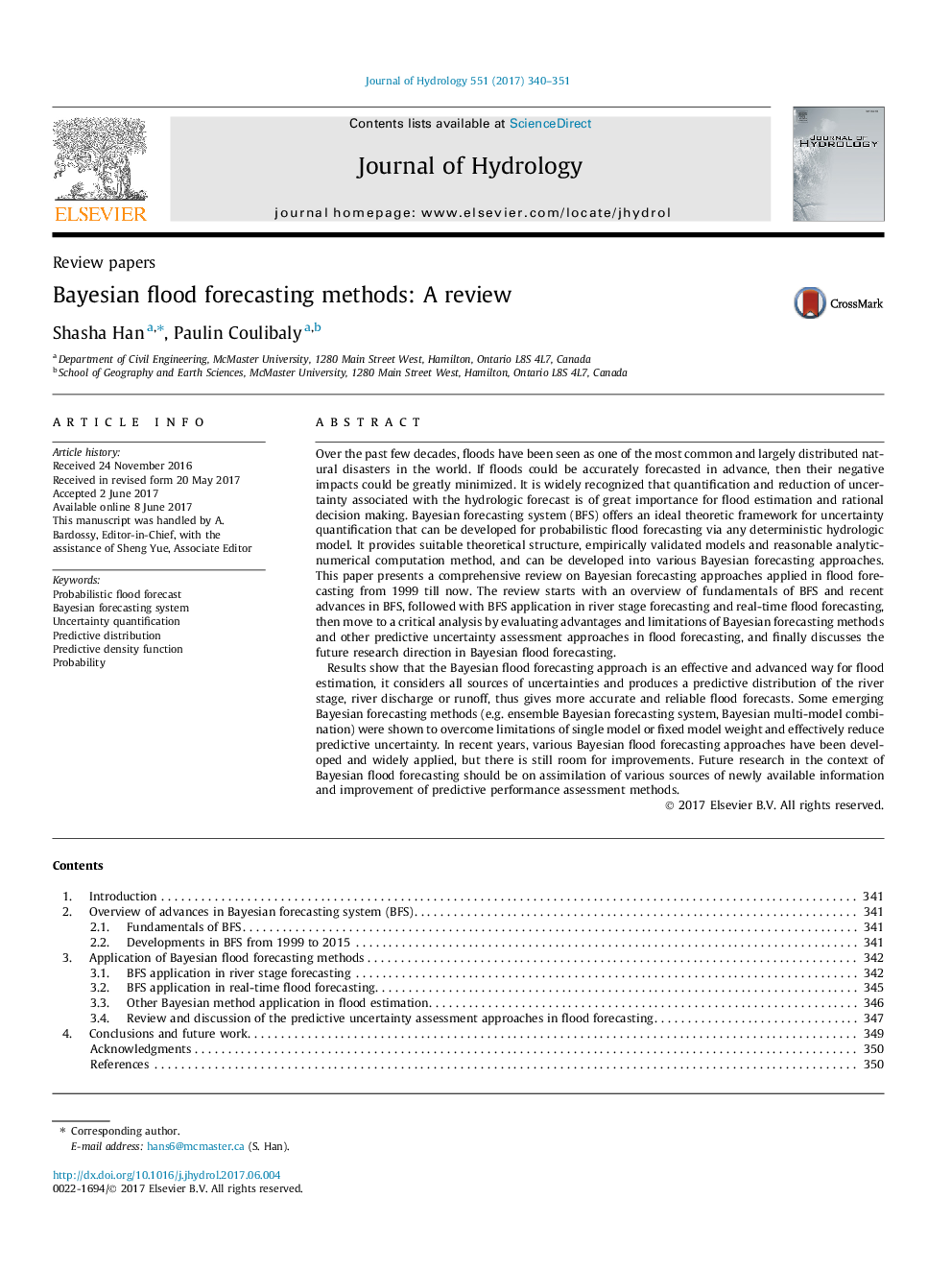| Article ID | Journal | Published Year | Pages | File Type |
|---|---|---|---|---|
| 5770906 | Journal of Hydrology | 2017 | 12 Pages |
â¢A comprehensive review on Bayesian flood forecasting methods is provided.â¢Bayesian methods are efficient for flood forecasting with uncertainty estimate.â¢Different predictive uncertainty assessment methods are compared and evaluated.â¢Future research direction within this field is discussed.
Over the past few decades, floods have been seen as one of the most common and largely distributed natural disasters in the world. If floods could be accurately forecasted in advance, then their negative impacts could be greatly minimized. It is widely recognized that quantification and reduction of uncertainty associated with the hydrologic forecast is of great importance for flood estimation and rational decision making. Bayesian forecasting system (BFS) offers an ideal theoretic framework for uncertainty quantification that can be developed for probabilistic flood forecasting via any deterministic hydrologic model. It provides suitable theoretical structure, empirically validated models and reasonable analytic-numerical computation method, and can be developed into various Bayesian forecasting approaches. This paper presents a comprehensive review on Bayesian forecasting approaches applied in flood forecasting from 1999 till now. The review starts with an overview of fundamentals of BFS and recent advances in BFS, followed with BFS application in river stage forecasting and real-time flood forecasting, then move to a critical analysis by evaluating advantages and limitations of Bayesian forecasting methods and other predictive uncertainty assessment approaches in flood forecasting, and finally discusses the future research direction in Bayesian flood forecasting.Results show that the Bayesian flood forecasting approach is an effective and advanced way for flood estimation, it considers all sources of uncertainties and produces a predictive distribution of the river stage, river discharge or runoff, thus gives more accurate and reliable flood forecasts. Some emerging Bayesian forecasting methods (e.g. ensemble Bayesian forecasting system, Bayesian multi-model combination) were shown to overcome limitations of single model or fixed model weight and effectively reduce predictive uncertainty. In recent years, various Bayesian flood forecasting approaches have been developed and widely applied, but there is still room for improvements. Future research in the context of Bayesian flood forecasting should be on assimilation of various sources of newly available information and improvement of predictive performance assessment methods.
